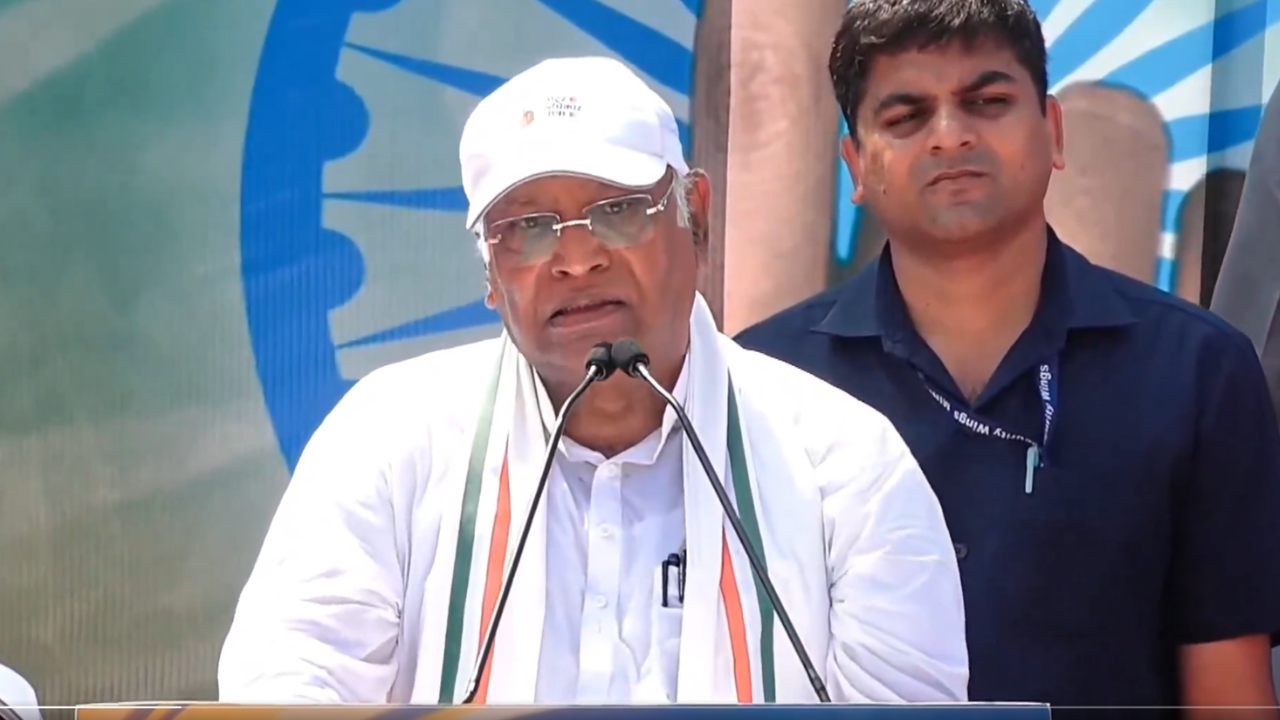Now Reading: Kharge Criticises PM Modi, Questions Nitish Kumar’s Stand on Socialism
-
01
Kharge Criticises PM Modi, Questions Nitish Kumar’s Stand on Socialism
Kharge Criticises PM Modi, Questions Nitish Kumar’s Stand on Socialism

Congress president Mallikarjun Kharge has sharpened his attack on Prime Minister Narendra Modi, accusing him of having what he described as a habit of taking credit for others’ work. Speaking at a public event, Kharge also questioned Bihar Chief Minister Nitish Kumar’s claim of following socialist principles, suggesting that his current political choices do not align with the values he often speaks about.
Kharge’s remarks come at a time when political exchanges between the ruling BJP and the opposition are growing more intense in the run-up to elections. His statement targeted both the central leadership and regional alliances, reflecting Congress’s attempt to position itself as a strong voice against the government’s policies.
In his criticism of Nitish Kumar, Kharge pointed out the contradictions between Kumar’s repeated references to socialism and his political decisions over the years. The Congress leader argued that leaders who align with parties that promote different ideologies should not claim the legacy of socialist icons, as it creates confusion for the public.
The comments have triggered reactions within political circles, with BJP leaders dismissing the allegations as baseless and highlighting the government’s development initiatives. On the other hand, opposition parties see this as part of a larger debate on the direction Indian politics is taking, especially with shifting alliances in states like Bihar.
For citizens, especially in Tier 2 cities and smaller towns, the focus of such debates often lies in how these political shifts translate into everyday governance and welfare measures. While the exchange of words may seem distant from daily life, the alliances and policies shaped by these leaders ultimately impact local economies, employment opportunities, and social welfare schemes.
Kharge’s pointed attack signals that the Congress intends to keep both national and regional leaders under scrutiny as the political season heats up. His words underline a broader message that voters should question the consistency between political claims and actions, a theme that is likely to remain central in the months ahead.

























